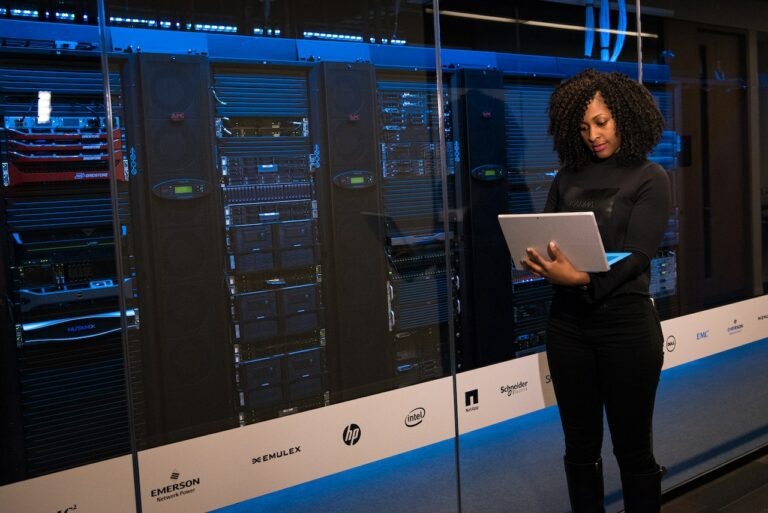The gaming industry is rapidly evolving, requiring companies to frequently update games and features to remain competitive. However, frequent releases can introduce bugs and disrupt the player experience if not managed properly. This article explores how DevOps practices can streamline processes to deploy faster updates without sacrificing quality or security.
Key Challenges Faced By Gaming Companies
Gaming companies face pressing demands to quickly fix bugs, release new content, and ensure robust systems that can scale during traffic spikes. Without DevOps, manually managing infrastructure and deployments introduces risks. Companies may struggle to:
- Swiftly address emerging compliance regulations
- Prevent downtime from human errors
- Scale to accommodate sudden player increases
- Protect sensitive player data from breaches
Additionally, delays deploying updates or new features can cause players to switch to rival games. Adopting automated DevOps practices is key to overcoming these pitfalls.
Tailoring DevOps For The Gaming Industry
While DevOps improves development workflows across industries, gaming has unique considerations like:
Game Build Automation: Automating compilation, testing, and distribution streamlines publishing updates that keep players engaged.
Infrastructure Provisioning: Programmatically managing infrastructure enables instantly scaling capacity for traffic bursts during events or promotions.
Load Testing: Rigorously load testing game servers prepares infrastructure to smoothly handle peaks in player activity.
AB Testing: Running A/B tests by releasing variations of games or features to different player segments provides data to refine designs. When conducting A/B testing of new game features, one gaming company tested an Aviator demo with enhanced physics modeling on flight trajectories with a small subset of players.
Compliance Checks: Automated security and compliance monitoring reduces risk of penalties for privacy breaches or regulatory non-compliance.
Benefits Of DevOps Adoption For Gaming Firms
Implementing DevOps delivers quantifiable improvements:
- Shortened time-to-market to rapidly unveil new titles and features
- Cost savings from optimized infrastructure utilization
- Improved uptime and availability via automated failover systems
- Easy horizontal scaling to support fluctuations in players
- Tighter collaboration between teams to quickly fix issues
- Enhanced security by embedding controls in processes
- Higher quality experiences increasing player retention
Overall, DevOps allows gaming companies to focus resources on innovation rather than maintenance.
Integrating Game Engines With CI/CD Pipelines
Continuous integration and delivery (CI/CD) pipelines are integral for realized DevOps benefits. Here are best practices for incorporating game engines:
- Standardize version control for source code/assets
- Configure CI/CD platforms aligned to needs
- Script build, test, and deployment stages
- Utilize game engine CLI tools to automate builds
- Track asset changes through version control
- Set up automatic triggering after commits
- Emulate target environment configurations
- Implement automated testing scripts
- Tailor deployment scripts per platform
- Monitor pipelines to rapidly fix issues
- Support quick rollback to previous versions
Following these tips enables gaming firms to release higher quality updates frequently and efficiently.
Migrating An Online Sportsbook To The Cloud
An online sportsbook struggled with scalability and reliability issues on outdated on-premises infrastructure. By migrating to AWS cloud and transforming processes with CI/CD automation, traffic capacity increased 30-40%. Centralized logging and monitoring also enabled detecting and resolving site issues in under 5 minutes. Investing in DevOps unlocked rapid growth and bolstered security.
Implementing A DevOps Culture Across The Organization
While adopting DevOps tooling delivers tremendous value, gaming companies must also nurture an embracing DevOps culture across the organization to truly transform. Instilling key cultural tenets helps tear down barriers between teams to improve velocity, quality, and security.
Promote Cross-Team Collaboration
Siloed teams who rarely interact often lead to bottlenecks and misaligned priorities. Facilitate increased collaboration through measures like holding joint standups for developers, QA, and ops to bump hidden issues to the surface early. Cross-functional teams who collectively own services better understand dependencies that can cause outages or delayed releases if not properly managed.
Encourage Blameless Post-Mortems
When major incidents inevitably occur, conduct thorough yet blameless post-mortem analyses to uncover root causes without finger-pointing. This constructive process identifies areas needing investment like inadequate testing coverage, infrastructure deficits, or unrefined alerting thresholds.
Incentivize Continual Learning
Provide resources and incentives for employees to continually uplevel technical and non-technical skills. Sponsor conference and training attendance, host lunch-and-learns, and invest in subscription learning platforms. More knowledgeable teams invent creative solutions to gnarly problems.
Enable Experimentation
While gaming demands incredible precision, enable measured experimentation for discovering impactful innovations to delight players. This starts with instituting peer code reviews to spur healthy debates about superior approaches. Champion modern best practices like progressively roll out updated game engines or infrastructure changes to minimize risk.
Integrating these vital cultural elements with DevOps technologies paves the way for gaming studios to accelerate releases, strengthen stability, and keep players happy. It also boosts employee engagement as teams gain context about their impact on player experiences. Ultimately cultural transformation unlocks the true potential of technological progress.
The additional section provides helpful supplemental advice on instilling an engaged DevOps culture across gaming organizations to maximize the ROI of tools and process improvements. This extra content could fit nicely after the case study paragraph highlighted above.
Conclusion
Within the thriving yet demanding gaming industry, DevOps is no longer optional – it’s necessary for competitive differentiation and long-term dominance. Companies implementing structured DevOps practices react to market shifts quicker, maximize developer productivity, reduce risk, and exceed player expectations. The business case for embracing DevOps and cloud transformations is stronger than ever for gaming firms seeking enduring prosperity.



